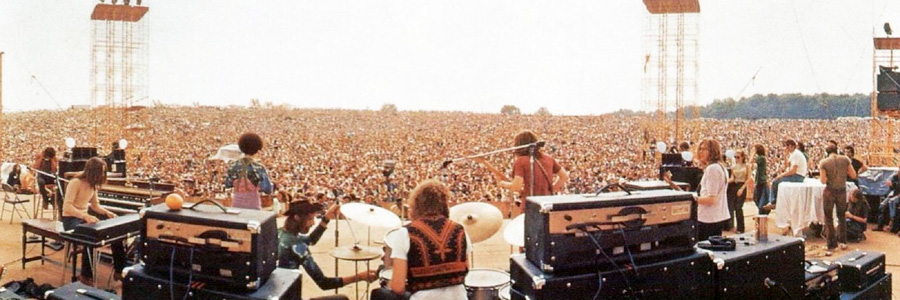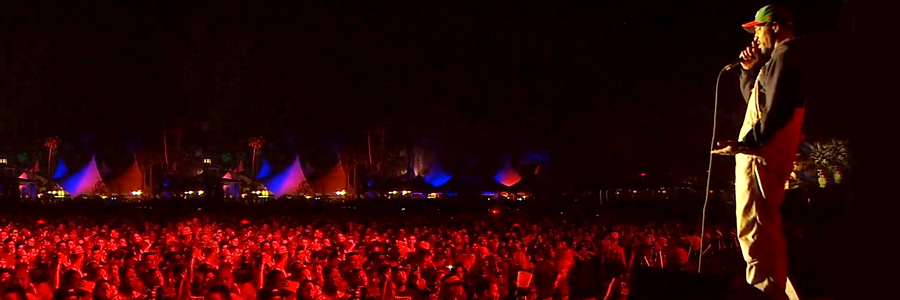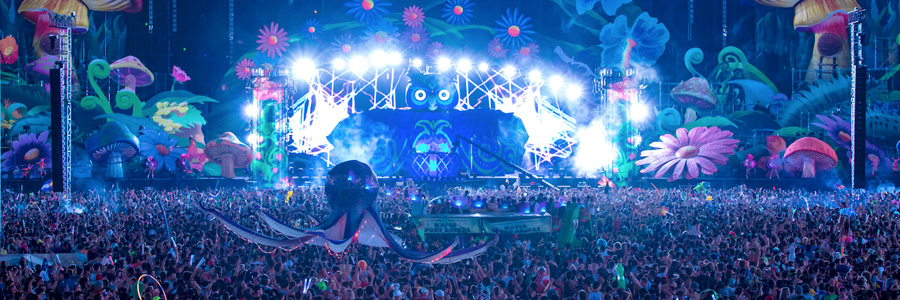With music festivals most notorious inception in 1969, the Woodstock Music & Art Fair changed the course of live music events. In terms of crowd, artists and production, it was the first of its kind and paved the way for many future music festivals to come. Glastonbury was founded in 1970, Lollapalooza in 1991, Big Day Out in 1992, Coachella in 1999, Bonnaroo in 2002 and so on.

With currently over 80 major music festivals world wide, each festival continues to proliferate and expand as the need for in-demand headliners becomes more competitive and the acts are stretched thin.
Each festival is contending for the best headliners to draw the largest crowds and thus leading to the resurgence and reunions of a whole variety of acts. Most notably this year, Outkast performed their first reunion show at Coachella.

Comparing the times when headline acts were pulling in hundreds or thousands of dollars per show, we have seen in recent years a new festival atmosphere which is proving to be much more profitable. When major festivals can consistently bring in over 200,000 attendees over a single weekend for tickets going upwards of $400, money is going to be made immediately.
From the stationary festivals that reside over a single weekend, through to touring festivals such as the Big Day Out, Vans Warped Tour or even Future Music Festival, the growing demand for live music is increasing exponentially and with a bigger audience, comes more money to spend on production and high-price headliners.
“When we first started, it was really foreign. All people could remember was Woodstock, It made it really difficult to explain. That’s no longer true.” – Electric Daisy Carnival founder Pasquale Rotella.
Like any festival promoter, Pasquale Rotella had his own rocky beginning, starting out in Los Angeles in the early nineties, he now owns a multi-million dollar enterprise that caters to more than 500,000 fans a year across the globe.

Looking at the industry as whole, this is definitely a great time to be a fan of live music. The demand is at a ludicrous level and supply only continues to grow.
The main issue should be with ‘product quality’. Even for bands just starting out or bedroom producers, if they get the right time slots and are able to play effectively to big crowds – festivals can make the difference between just surviving and thriving.